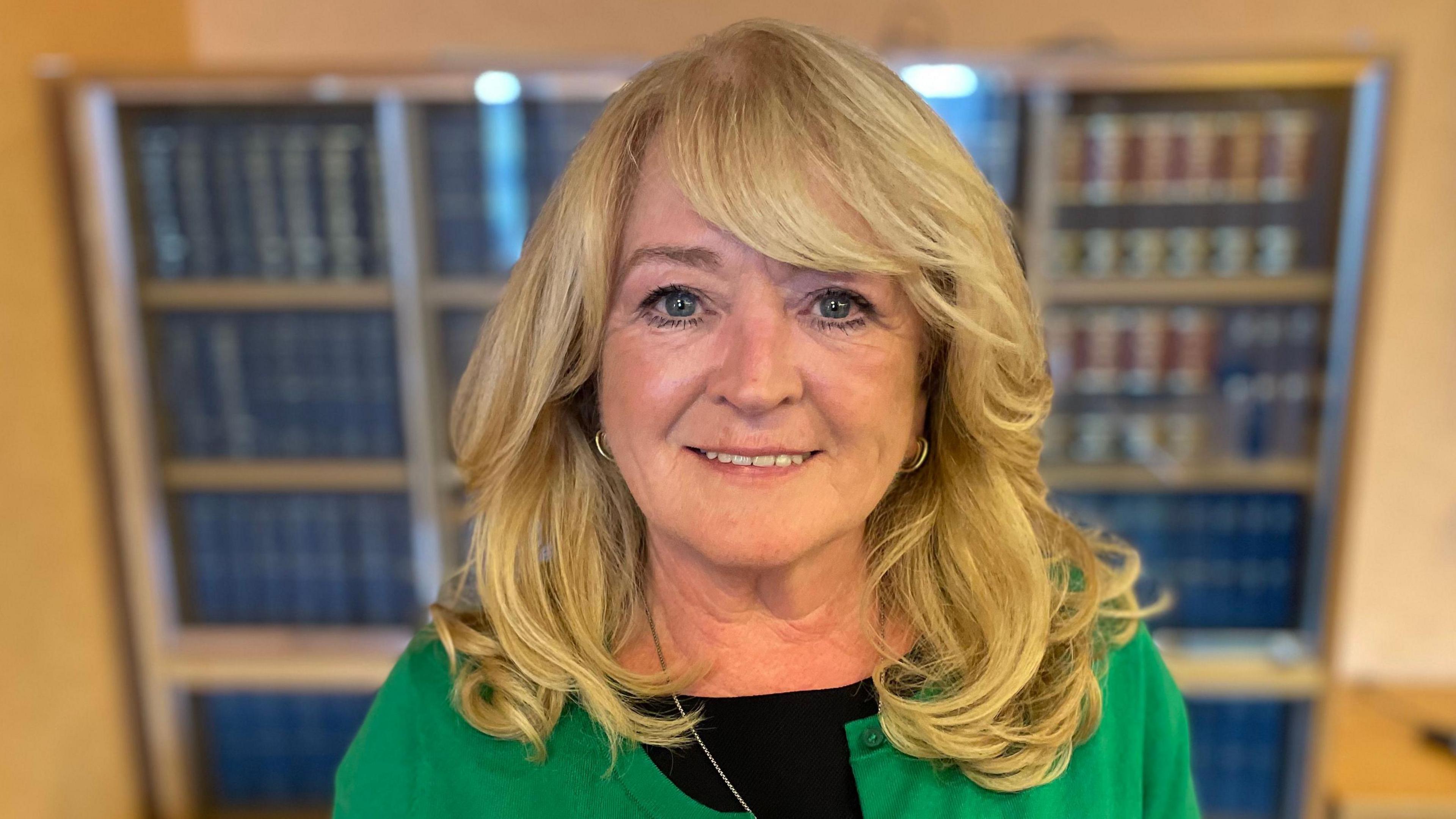O2 settles disability case for £160k

Eamon Bowen brought a disability discrimination case against his former employer
- Published
A sales advisor has settled a disability discrimination case against his former employer for £160,000.
Eamon Bowen took the case against his former employer Telefónica Ltd and was supported by the Equality Commission for Northern Ireland.
The case was settled with no admission of liability.
O2 - the trading name of Telefónica Ltd in the UK - said it had apologised to Mr Bowen and that it was "pleased to have mutually reached a settlement".
Mr Bowen worked in an O2 shop for a number of years and was diagnosed with spondylolisthesis, a degenerative disc disease, in 2014.
The condition caused chronic pain, exhaustion, sleep and mobility issues which meant Mr Bowen had to take periods of sick leave.
He worked from home during the pandemic.
He returned to work in-store in June 2020 but his illness made his job difficult.
Mr Bowen was referred to occupational health who made recommendations aimed at helping him manage his job.
He said the recommendations were not implemented appropriately and he felt he had no option but to resign.
Mr Bowen left his job in November 2021.
"I only ever wanted someone to take me seriously and when I landed with the Equality Commission they really did," he said.
Mr Bowen said the settlement highlights the importance of taking disabilities seriously.
"I enjoyed my work, I loved my work, loved working," he added. "I stepped away from the role with a massive amount of regret - if the processes had been followed I would absolutely be in employment still."
When settling the case, Telefónica Ltd apologised to Eamon for "significant upset, distress and injury to feelings".
The company also agreed to work with the Equality Commission to review their policies, practices and procedures.
An O2 spokesperson said the company had a "broad and diverse workforce".
"We have a range of measures in place to support employees who have a disability or specific needs, such as making layout changes for wheelchair users, hiring sign language interpreters for employees with hearing difficulties, and providing specialist equipment where appropriate," they added.
“We have apologised to Mr Bowen for any distress caused in this case, and we are pleased to have mutually reached a settlement.”

Geraldine McGahey from the NI Equality Commission said employers must consider occupational health recommendations
Geraldine McGahey, chief commissioner with the Equality Commission for Northern Ireland, said: "It is essential that employers carefully consider all recommendations made by occupational health and communicate with the person with a disability to ensure they understand their needs.
"This case was settled for a significant amount of money and the company has lost an experienced employee."
Ms McGahey also said staff should be aware that workplaces have a legal requirement to consider reasonable adjustments.